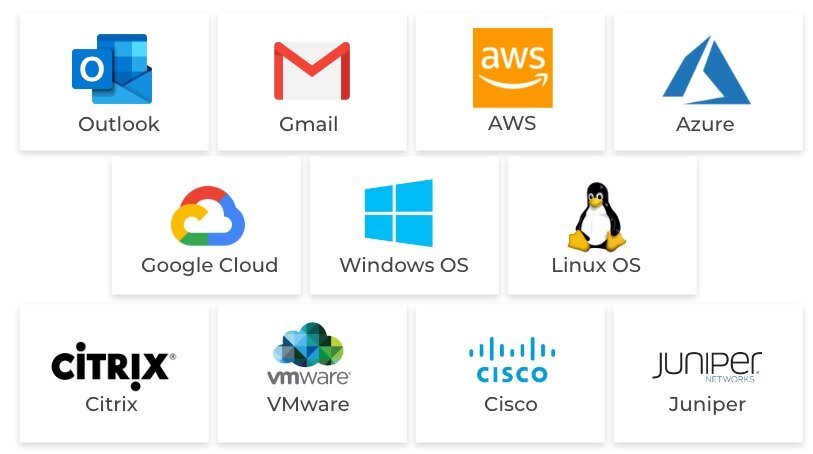
Remote Work
Since the beginning of the pandemic last year, companies have been forced to shift to remote work to stay alive in the market. But does remote work offer better benefits for employees as well as for the employer?
Go through this blog post to understand more on how even service-based companies, which are traditionally thought of to be functioning majorly on client interaction, can also make the transition to remote work.
Before getting into the details of how to set up your service-based company to operate remotely, we must have a closer look at what a service-based company is, and what the difference is between a service and a product-based company.
To start off, we need to understand that there is a huge difference between these two types of companies. Product-based companies sell actual physical products like clothes or shoes, while service-based companies provide value to your business in the form of service offerings.
In a product-based company, value generation has to happen with the client, whereas, in a service-based company, the value generation can happen detached from the customers. This poses special challenges for service-based companies who operate or are looking to operate remotely.
So, what are the trends which have caused companies to shift from on-site work to remote work?
THE REACH OF THE INTERNET
Thanks to advancement in technology, the internet has become a necessity for professionals to run a business in today’s world. It has never been easier to reach people at the click of a button. Tools like Slack for communicating within your team, Asana or Trello to help manage your projects and individual tasks on a single platform, and video conferencing tools like Zoom or Microsoft Teams, can help you interact effectively with your team members in spite of not being physically present together.
Additionally, businesses are now effectively implementing cloud based systems which has made it even more easy to transition to remote work. This is how technology is acting as an enabler to shift your business to have efficient remote operations.

EMPLOYEE SATISFACTION
Having a business operating remotely has a lot of advantages for owners as well as employees. For example, It provides a better work-life balance with flexible working hours, leading to increased employee productivity.
Additionally, employees also save the time that they would have wasted on commuting, and deliver better results as compared to when they would have been working in the office. This all leads to a dramatic decline in turnover rates, and soaring employee satisfaction. In fact, studies show that employees have been more satisfied with their job since the introduction of a work-from-home model.
COVID-19
The coronavirus pandemic has definitely acted as an enabler of remote work. With a complete lockdown in many countries, it has become important for companies to make remote work arrangements. As offices are asked to close, it is important for the employees to continue working remotely to keep their companies afloat. Employers have now understood the benefits of remote work and how it positively affects the morale of employees thereby increasing their productivity, and value to the company.
Benefits of having remote teams
HIRING TALENT
Once you have set up your business, the next step is to attract talent and form a great team of like-minded people to work on the project. This is one of the easiest steps if your company is set up to work remotely.
You have access to a global talent pool, without having to worry about the relocation costs, work permits, and visa regulations and taxation. You can hire full-time remote workers from anywhere in the world and they can get to work right away.
MARKET REACH
If your company is a remote or a remote-first company, one big advantage which you have is that there are no geographical limitations when you start searching for potential clients. Your company can be based in the USA, and you can still work with clients from Australia while operating remotely.
In other words, you do not have to be physically present at the client’s end to start working on the project.

LOWER INVESTMENTS
The best part of having a remote company is that you no longer have to spend money on rent for the real estate to set up your office space or other infrastructure. The only costs which you would incur are setting up the employees’ home office, and providing employees with equipment needed for their job.
You can say goodbye to fancy offices that boast about having canteens and gyms, achieve cost savings by shifting to permanently remote or hybrid teams, and reward your employees better compensation for exceptional work. This also helps you reduce your ecological footprint and make your company more sustainable.
Potential Problems and Solutions
LANGUAGE BARRIER
Having hired employees from different countries, one of the main problems you would face would be regarding the language barrier. Not everyone has the same first language! At such a time, it is better to have company policies that clarify the official language of communication within the company.
On the other hand, you can use the variety of languages spoken by your employees to your benefit. For example, you can use your employees as an off-shore sales front in their home country. Nothing beats the advantage of having a local person speaking the language to acquire new clients in different countries.
TIME DIFFERENCES
With your team becoming more global, you will inevitably have people working in different time zones. Although they have freedom and flexibility of working on their own schedule, it is necessary for you as an owner to bring some standardization to this process. You can schedule a meeting once or twice a week with your team via video conference to discuss progress and lay out the strategy for the coming days, allowing employees to interact with each other on a common platform and on a regular basis.
SECURITY
As people work from home or while travelling the world, it is a necessity to keep company information safe. To ensure safety, you as an employer should have strict security policies in place, provide employees with security training, and detail the importance of cybersecurity to ensure confidentiality. It is better that you use licensed software and anti-malware programming to keep your information safe as well.

EMPLOYEE SUPERVISION
In remote companies, you do not have employees working in a common space, which leads to a lack of interaction between managers and employees, leading to concerns that the employee is not working to their full potential or not as efficiently as expected. You can overcome these concerns by scheduling daily one-on-one meetings with your employees to keep a tab on their work and project deadlines. Communication and employee engagement are the key here to make your employees more productive.
Is it difficult to manage remote teams?
If it is the first time that you are managing a remote team, it is natural to be a bit skeptical while navigating through the complicated tasks of monitoring your remote workforce’s productivity, emotion, or mindset.
But at the same time, it is important that the employee understands the company culture. It is necessary that you keep a tab on their wellbeing and that is not just restricted to having a short video call with them. So what do you really need to do to manage your remote working team?
SET EXPECTATIONS
Make sure that the employee knows their targets, priorities and milestones. You should also clarify the working hours and the preferred channels of communication for personal and professional work.
TRACK SCHEDULES
Prepare tasks on your preferred project management tool and keep a tab of the employee’s progress through the task board. This will ensure that the work is on track without having too much intrusion from your side.
COLLABORATION
Make use of collaboration tools like Miro to enable colleagues working on the same project to collaborate and communicate better. This will remove obstacles and avoid miscommunication within your teams.

You can find more information on how to onboard remote employees and build remote teams here.
Let us know your thoughts and experiences in handling remote jobs or shifting to permanent remote work for your business. As always, if you need any support in building your remote operations or scaling your business, get in touch with us!

